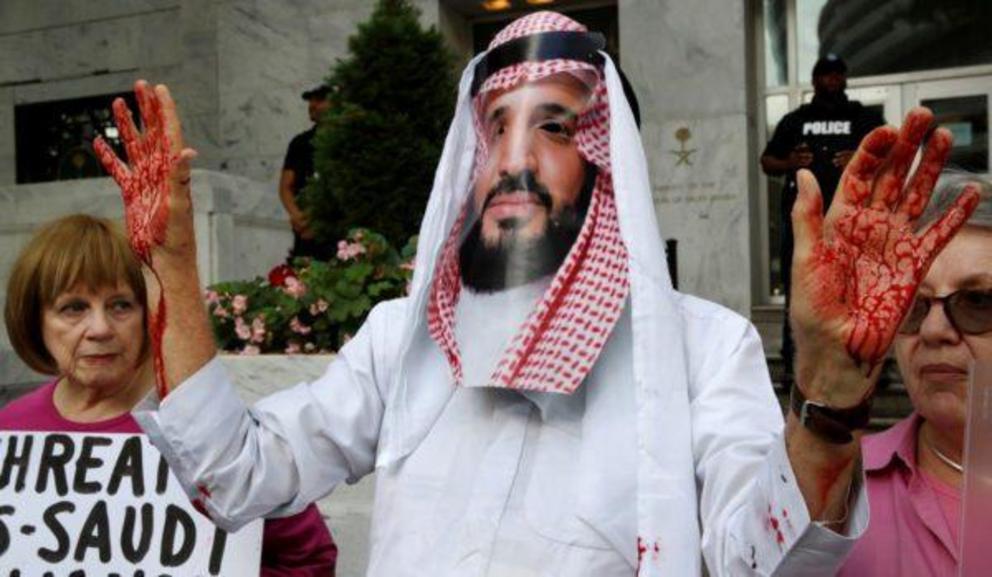The geopolitical implications of the Khashoggi murder
Is Washington bluffing, or is the geopolitical equation in the Middle East about to be upended?
This week Donald Trump threatened Saudi Arabia with “very severe” consequences in response to the alleged murder and dismemberment of Washington Post journalist Jamal Khashoggi. Vice president Mike Pence reinforced this threat, and senator Linsey Graham took it a step farther by directly calling for the removal of crown prince Mohammed bin Salman (aka M.B.S.). For anyone with even a rudimentary understanding of the geopolitical dynamics in the Middle East, these developments are astounding. Even if Washington is bluffing, the implications cannot be overstated.
In spite of Saudi Arabia’s long history of human rights abuses, its support of Wahhabi terrorism, and its ongoing genocidal war in Yemen, the kingdom has always gotten a free pass (and lots of weapons) from Washington and its allies. Even when a U.S. supplied bomb was used to strike a school bus in Yemen killing 40 children this past August, no one batted an eye. Up to this point the relationship with the Saudis was considered too important to risk. Now for some reason the Khashoggi murder is being treated as a line crossed.
The first question here is whether this newfound moral outrage represents a fundamental shift in U.S. foreign policy, or is the tough talk merely a smokescreen, with business as usual resuming after stern words and a slap on the wrist.
The second question is whether the Saudis will take a submissive posture to placate the West, or whether they would make due on their threats to retaliate.
Included among the threatened avenues of retaliation were the weaponization of oil prices, a mass dumping of U.S. treasuries, and the establishment of a Russian military base in the Kingdom. In short a total geopolitical realignment.
These threats have been interpreted by western “experts” as bluster. Saudi Arabia, they say, no longer has the leverage it once had in oil markets, and is no position to play hardball with Uncle Sam.
For example Eurasia Group founder and CFR member Ian Bremmer was quoted by Bloomberg as saying:
“With the U.S. as the world’s largest oil producer, the relationship is even more imbalanced than it was before,” “There’s not much the Americans need from the Saudis. The reverse is not true.”
Essentially the U.S. foreign policy establishment seems confident that they can punish the Saudis without serious consequence. They assume that the royal family will either weigh their options and depose M.B.S. preemptively, or accept a slap on the wrist, apologize and watch their step moving forward. But what if they’re wrong? What happens if the crown prince refuses to bow?
Saudi Arabia is a central pillar of the global oil market, and the most influential member of the OPEC cartel. It has also been a key U.S. ally in conflicts throughout the Middle East (notably in the efforts to topple the Syrian government, and crush Shiite rebels in Yemen). The Saudis also happen to be the lynchpin of the Petrodollar system. Mohammed bin Salman has the power to crash the U.S. economy, tip the regional balance of power in favor of Russia, and unseat the dollar from its reserve currency status in one fell swoop. To assume that he wouldn’t use that power if cornered is a bit naive.
Even if the U.S. is merely posturing, it might not matter at this point. Whether or not the Saudis acquiesce this time around, they will most certainly remember the humiliation, and it will affect their calculous. Expect Russia to take full advantage of this.

